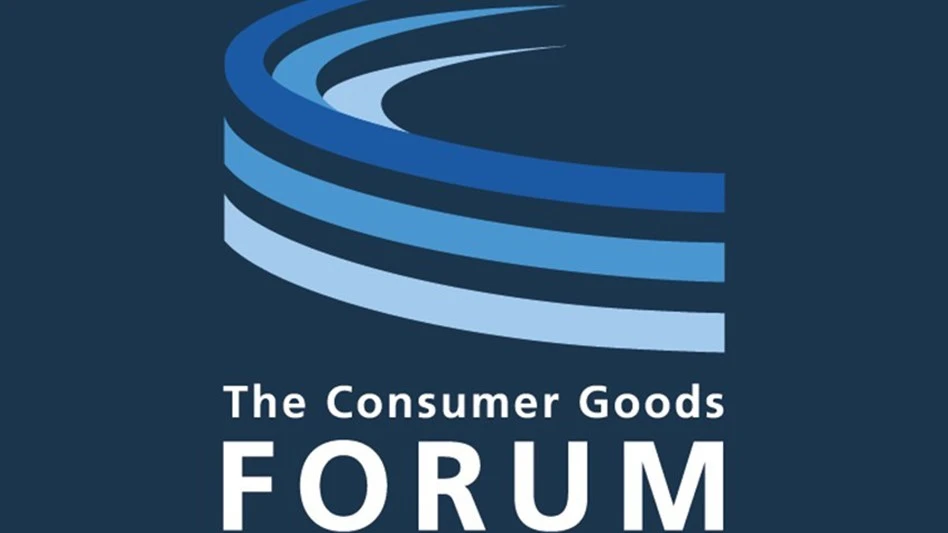
Photo courtesy of Consumer Goods Forum
Twelve member companies of the Paris-based Consumer Goods Forum’s (CGF) Coalition of Action on Plastic Waste have published a letter of intent addressed to suppliers, regulators and investors expressing their demand for chemically recycled packaging material produced in line with their environmental safeguards.
The Coalition says a wider survey of its membership indicates there will be demand for 800,000 tons of chemically recycled material per year by 2030 in addition to their need for mechanically recycled materials.
Companies represented in the letter are Amcor, Barilla, Colgate-Palmolive, Danone, Ferrero, Haleon, Henkel, Mars Inc., McCain Foods, Mondelez International, PepsiCo and Unilever. In all, the CGF claims 400 members in 70 countries.
The Coalition says that by expressing interest in obtaining these materials, companies are sending a strong signal to regulators and investors for the need to scale chemical recycling infrastructure for plastics while meeting the necessary environmental safeguards laid out in the Coalition’s Vision and Principles position paper, which it released in April. The paper, entitled “Chemical Recycling in a Circular Economy for Plastics,” encourages the development of new plastics recycling technologies that meet six key principles for credible, safe and environmentally sound development.
Along with the April position paper, the Coalition published an independent life cycle assessment study to show how chemical recycling of hard-to-recycle plastic could reduce its climate impact compared with sending that material to waste-to-energy incinerators.
In the letter, the Coalition says “the parties, guided by the Global Commitment to a New Plastics Economy, an initiative of the Ellen MacArthur Foundation, are committed to driving ambitious progress toward increasing the use of recycled materials in their packaging and achieving higher recycling rates in line with goals set by companies and some governments.
“To this end, the parties recognize the need for adequate collection and sorting infrastructure for plastic packaging waste and plastic recycling infrastructure, both mechanical and chemical,” according to the letter. “The parties also recognize that such development will require financial support to scale up infrastructure systems in the pursuit of two aims—to process far higher volumes of plastic waste that is currently ending up in landfills or incinerators; and second, to reliably provide high volumes of recycled plastic, including those used in food contact and pharmaceutical materials.”
The letter also states that, if global investment in the field materializes by 2030, the companies will be interested in purchasing commercial volumes of chemically recycled plastic content to incorporate in their packaging portfolios from the relevant organizations in the supply chain.
However, in the view of Greenpeace USA Oceans Director John Hocevar, increased chemical recycling is a case of corporations “focusing on approaches that are near the bottom of the waste management hierarchy.”
Responding to the Coalition’s letter in a news release, Hocevar says, “Recycling is not going to cut it. So-called chemical recycling is not credible, safe or environmentally sound, and it is just greenwashing to pretend otherwise. If these corporations truly want to stand on the right side of history, this November they would support an ambitious Global Plastics Treaty that will finally end the age of plastic by significantly decreasing production and increasing reuse.”
Latest from Recycling Today
- Rebar association points to trade turmoil
- LumiCup offers single-use plastic alternative
- European project yields recycled-content ABS
- Astera runs into NIMBY concerns in Colorado
- ReMA opposes European efforts seeking export restrictions for recyclables
- Fresh Perspective: Raj Bagaria
- Saica announces plans for second US site
- Update: Novelis produces first aluminum coil made fully from recycled end-of-life automotive scrap





